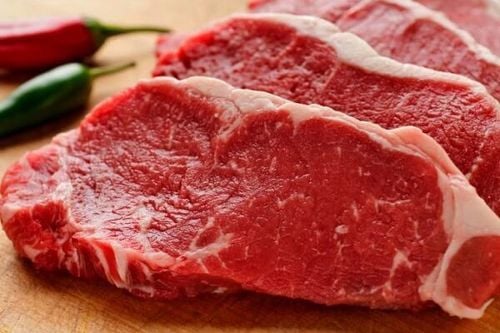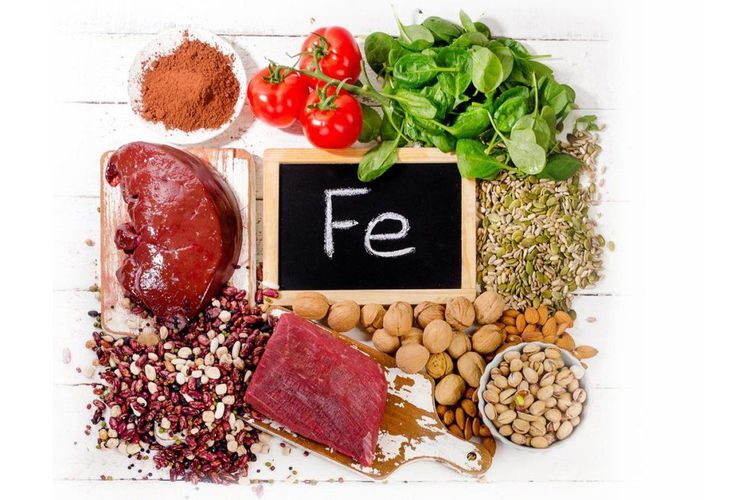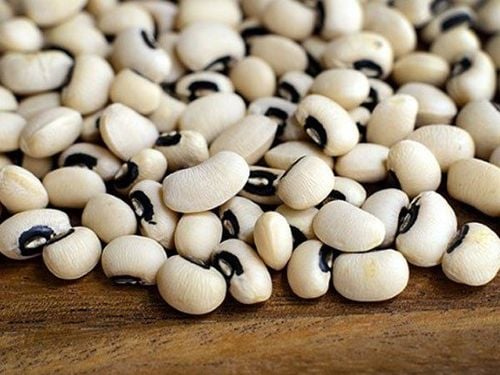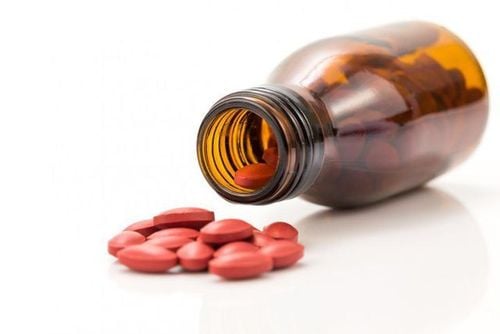Beef is a rich source of protein, vitamins, and essential minerals. Consuming beef in moderation can offer notable health benefits, including iron supplementation, muscle support, and immune system enhancement.
1. Overview of anemia
If you often feel fatigued and exhausted, you may be experiencing anemia. This common blood disorder that can affect anyone at some point in life.
While mild anemia is usually short-term, it can become severe if left untreated. Fortunately, anemia can often be prevented or managed by ensuring adequate iron intake.
Anemia occurs when the body does not have enough healthy red blood cells, either due to a low red blood cell count or a deficiency of hemoglobin, an iron-rich protein essential for oxygen transport. Red blood cells are responsible for delivering oxygen throughout the body, with hemoglobin playing a key role in this process.
When hemoglobin levels or red blood cell counts fall below the required threshold, your body does not receive enough oxygen, leading to symptoms such as fatigue, dizziness, shortness of breath, pale skin, headaches, and cold extremities.
One of the most common types of anemia is iron-deficiency anemia, which occurs when the body does not get enough iron from daily nutrition. Iron, along with other vital nutrients like vitamin B12, protein, and folate, is necessary for producing hemoglobin and healthy red blood cells. Therefore, maintaining a well-balanced diet or taking supplements when necessary is crucial.
Another common cause of iron-deficiency anemia is blood loss, which may result from childbirth, injury, or surgery. Women of reproductive age are particularly at risk due to menstrual blood loss.

Experts recommended that pregnant women must ensure adequate iron intake, as untreated anemia during pregnancy can lead to iron-deficiency in newborns, hindering their growth and brain development.
Many people with anemia may not realize they have it, as symptoms can be mild or even absent. A simple blood test at a medical center can confirm whether you have anemia.
2. Should You Eat Beef If You Have Anemia?
Beef is a nutritious source of protein and essential nutrients, but it also contains cholesterol and saturated fats that can contribute to fat buildup in the bloodstream.
While beef is a healthy part of a balanced diet, it should be consumed in moderation. Studies suggest that excessive consumption of red and processed meats may increase the risk of cancer, diabetes, cardiovascular disease, and premature death. However, eating moderate amounts and choosing lean cut, beef can offer significant health benefits.
Beef is an excellent source of iron, which helps the body produce hemoglobin to transport oxygen from the lungs to other parts of the body. Insufficient iron can lead to iron-deficiency anemia, causing symptoms like weakness, fatigue, and lethargy. Therefore, nutrition experts suggest that eating beef can help prevent iron-deficiency anemia in high-risk individuals.

3. Additional Health Benefits of Beef
In addition to providing iron and preventing anemia, beef offers several other health benefits:
- Boosting the Immune System: Beef is a rich source of zinc, which plays a crucial role in tissue repair and immune function. Children and adolescents need sufficient zinc intake for proper growth and development.
- Supporting Muscle Growth: Protein is essential for muscle health, helping to repair muscle tissues that naturally deteriorate with age. Moreover, protein intake supports muscle building, making it particularly beneficial for individuals engaging in strength training.
A serving of beef provides the recommended daily protein intake, helping prevent muscle loss, which can lead to weakness and balance issues, particularly in individuals over 55.
4. Nutritional Profile of Beef
The nutritional content of beef varies depending on preparation methods. On average, a 4-ounce serving of beef contains:
- Calories:265
- Fat: 19g
- Protein: 21g
- Fiber: 0g
- Carbohydrates: 0g
- Sugar: 0g
Additionally, a serving of beef provides about 12% of the recommended daily iron intake, along with essential vitamins and minerals such as vitamin B3, B6, B12, phosphorus, and zinc. However, due to potential health risks, it is advised to limit beef intake to 4 ounces or less per serving.
5. Iron-Rich Foods for Anemia
Most people can obtain sufficient iron from their daily diet. Red meat, poultry, and fish are excellent sources of heme iron, which is easily absorbed by the body. Heme iron is bound to hemoglobin, making it efficient for oxygen transport.
Iron is also found in leafy greens, whole grains, legumes, mushrooms, and other plant-based sources. Vegetarians or those eating less meat should focus on plant-based iron sources and pair them with vitamin C to enhance absorption.
According to health experts, women aged 19–50 should consume 18mg of iron per day, while women over 51 and men over 19 need 8mg daily. A well-balanced diet combining meat, vegetables and fruit can provide sufficient iron. Iron-fortified foods like flour, milk, and breakfast cereals are also good options.
Some iron-rich foods include:
- Spirulina (28mg iron per 3 ounces)
- Oysters (9mg iron per 3 ounces)
- Fortified breakfast cereals (30–60mg iron per 3 ounce)
- Cooked soybeans (9mg iron per cup)
- Pumpkin seeds (8mg iron per 3 ounces)
- Cooked lentils (7mg iron per cup)
- Cooked kidney beans (4mg iron per cup)
- Ground beef (3mg iron per 4 ounces)
- Boiled spinach (7mg iron per cup)
People who are taking iron supplements should be cautious, as excess iron can accumulate in the body and become toxic. Hereditary conditions like hemochromatosis can cause iron buildup in organs, leading to heart failure and diabetes. Always consult a doctor before taking iron supplements.
We hope this information provide you more choices about eating beef for anemia. Wishing you a healthy diet and improved well-being!

Please dial HOTLINE for more information or register for an appointment HERE. Download MyVinmec app to make appointments faster and to manage your bookings easily.
Source: doyou.com, health.harvard.edu, newsinhealth.nih.gov
To arrange an appointment, please call HOTLINE or make your reservation directly HERE. You may also download the MyVinmec app to schedule appointments faster and manage your reservations more conveniently.








